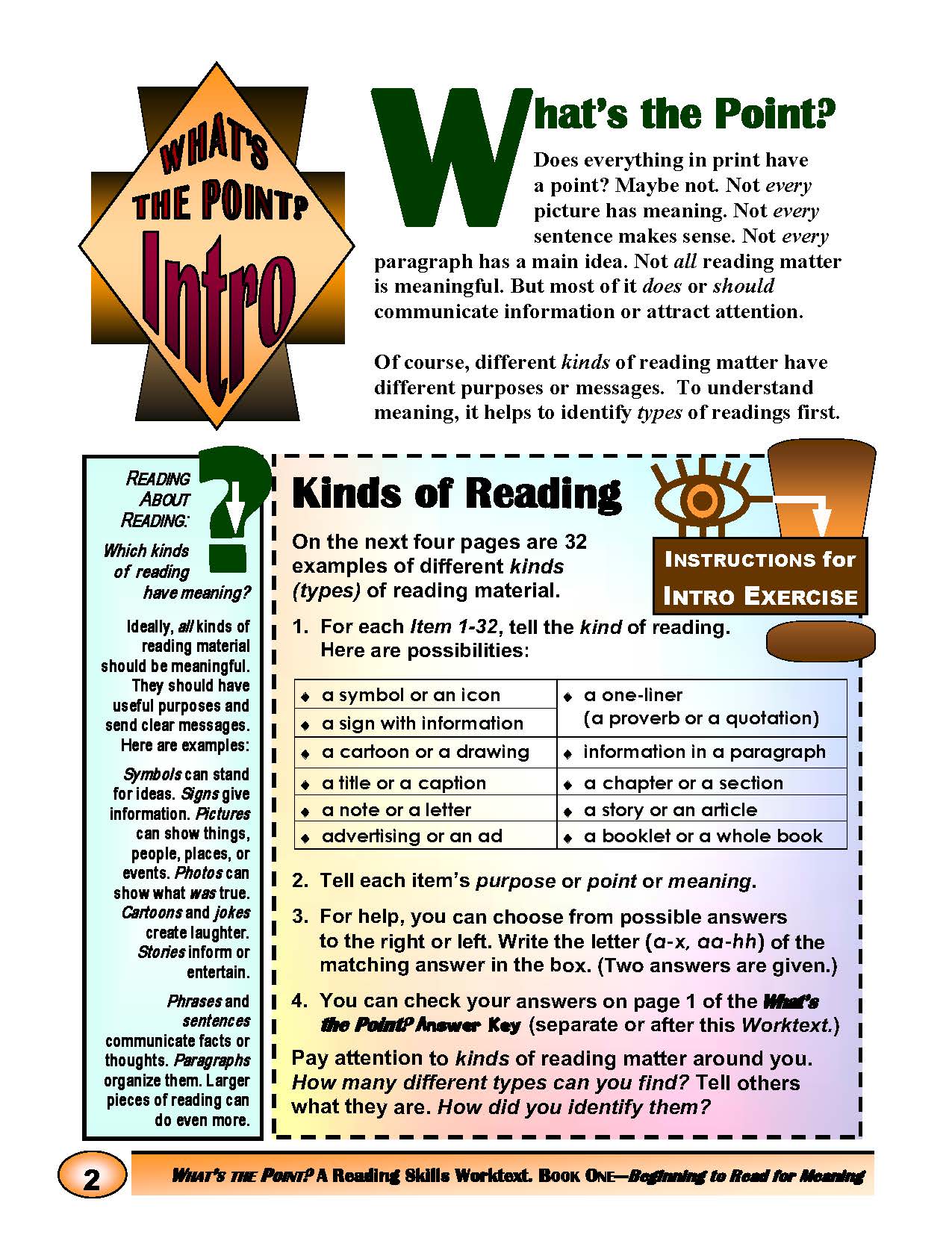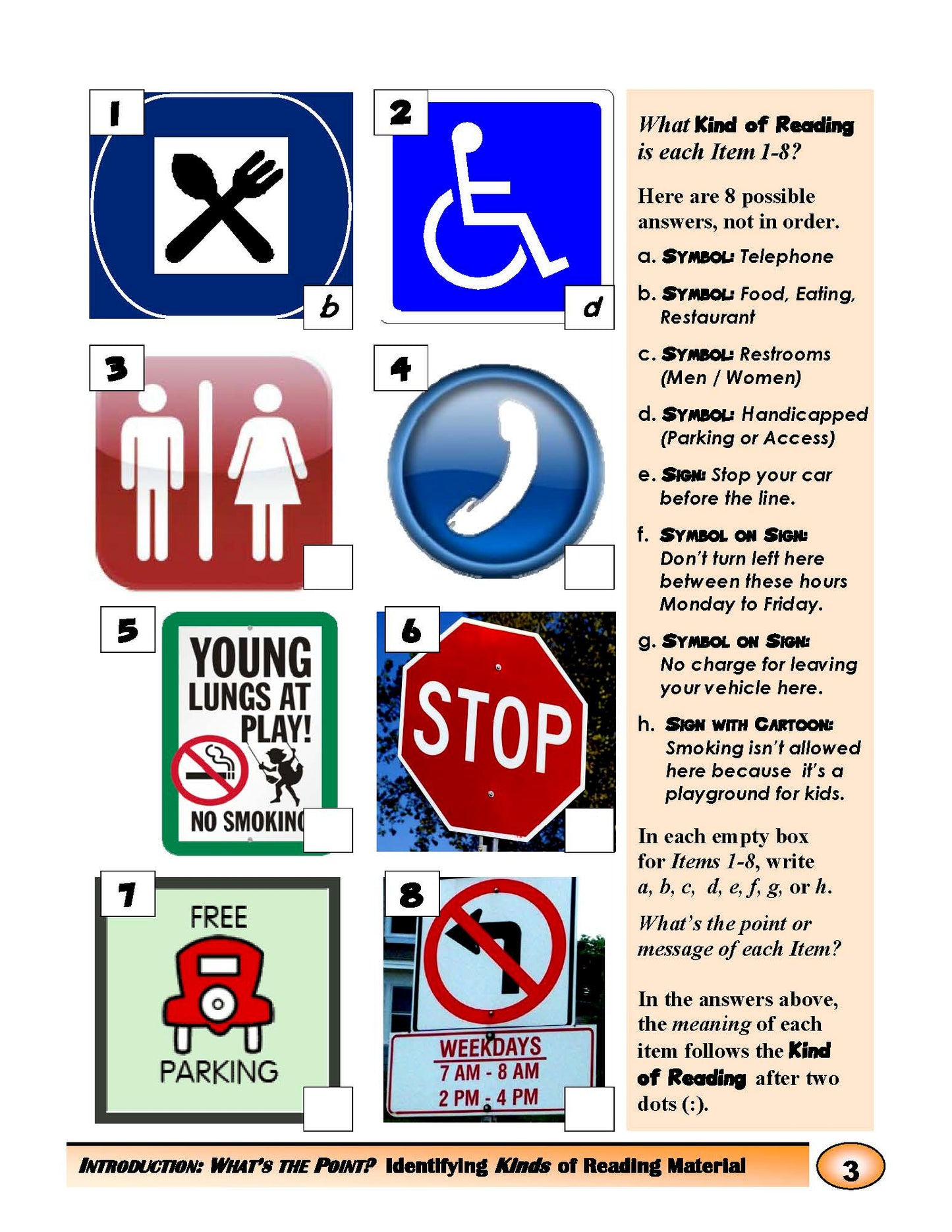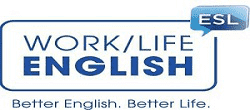1
/
of
3
Work/Life English
F-07.02 Recognize Kinds of Material to Read for Meaning
F-07.02 Recognize Kinds of Material to Read for Meaning
Regular price
$0.00 USD
Regular price
Sale price
$0.00 USD
Unit price
/
per
What’s the Point? Book One: Beginning to Read for Meaning. Intro: “Kinds of Reading,” pages 1-6
6 pages
Who It’s For: Language & Reading Teachers & Learners Wanting Reminders of the Scope of Reading as a Practical, Real-Life Ability
Why You Need It: As a practical, everyday skill, the term reading applies to many areas of life preceding or beyond academic study. To facilitate comprehension, various kinds of reading (symbols, signs, visuals, one-liners, connected text, fiction, true stories, cards, letters, factual info, etc.) may invite different approaches. Here’s a colorful introductory overview of “Kinds of Reading” with exercises to engage in.
What You’ll / They’ll Do:
[1] On a text opening page, read and consider the focuses of its eight (8) Parts to follow.
[2] On page 2 of the What’s the Point? Book One Intro, look through explanations and examples of “Kinds of Reading with Meaning.”
[3] On following pages, match 32 numbered visuals with lettered captions a-z / aa-hh. Check whether you agree with their interpretations of meaning. Put these into your own words.
[4] If you want more practice in this classifying skill, collect, label, and interpret the meaning of examples of these kinds of reading—on paper, onscreen, and/or in tangible reality. Can you find instances of even more reading types? Remember that in the future, before reading items carefully, you might ask yourself what type of material they are.
Couldn't load pickup availability






